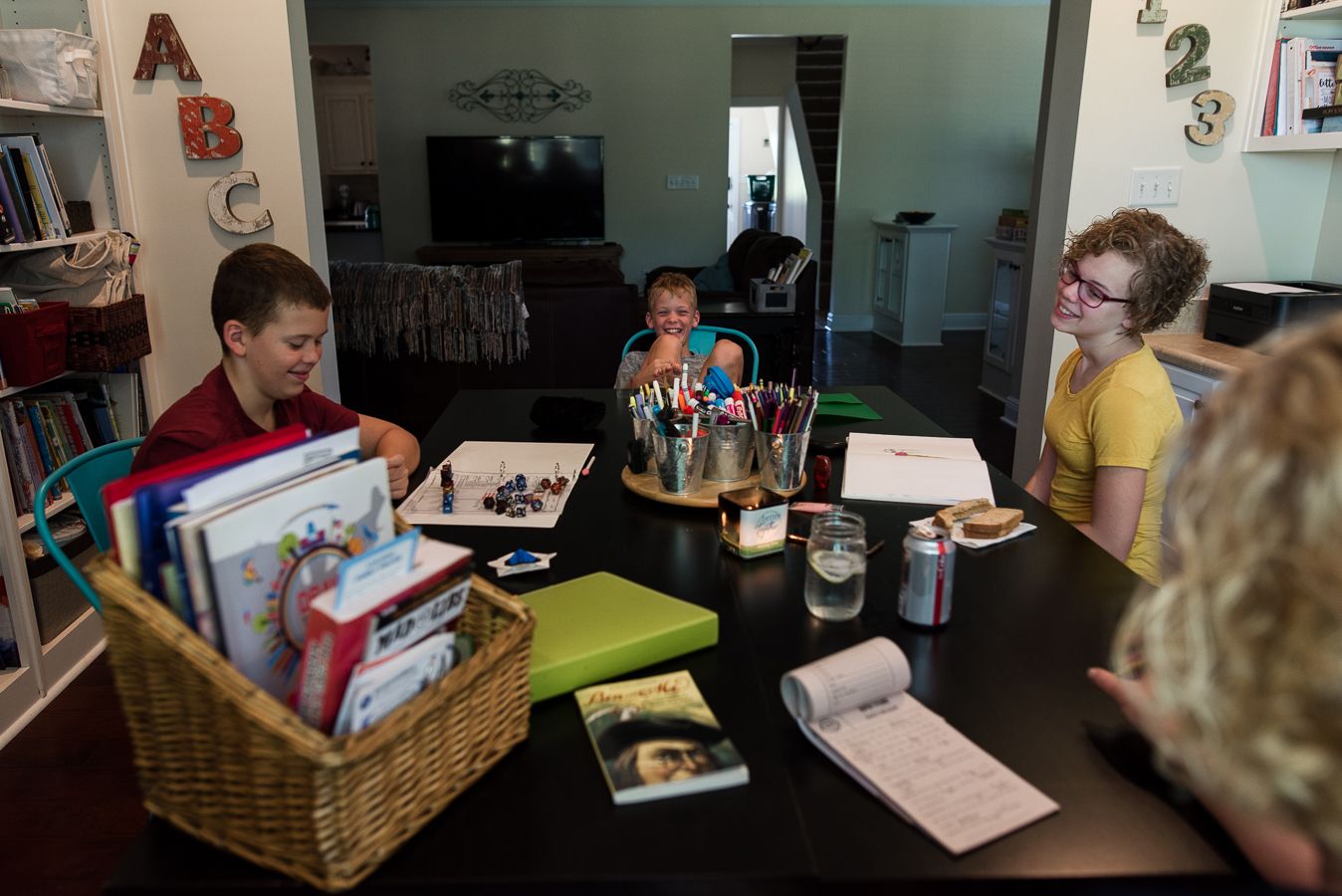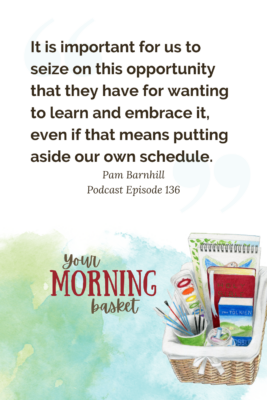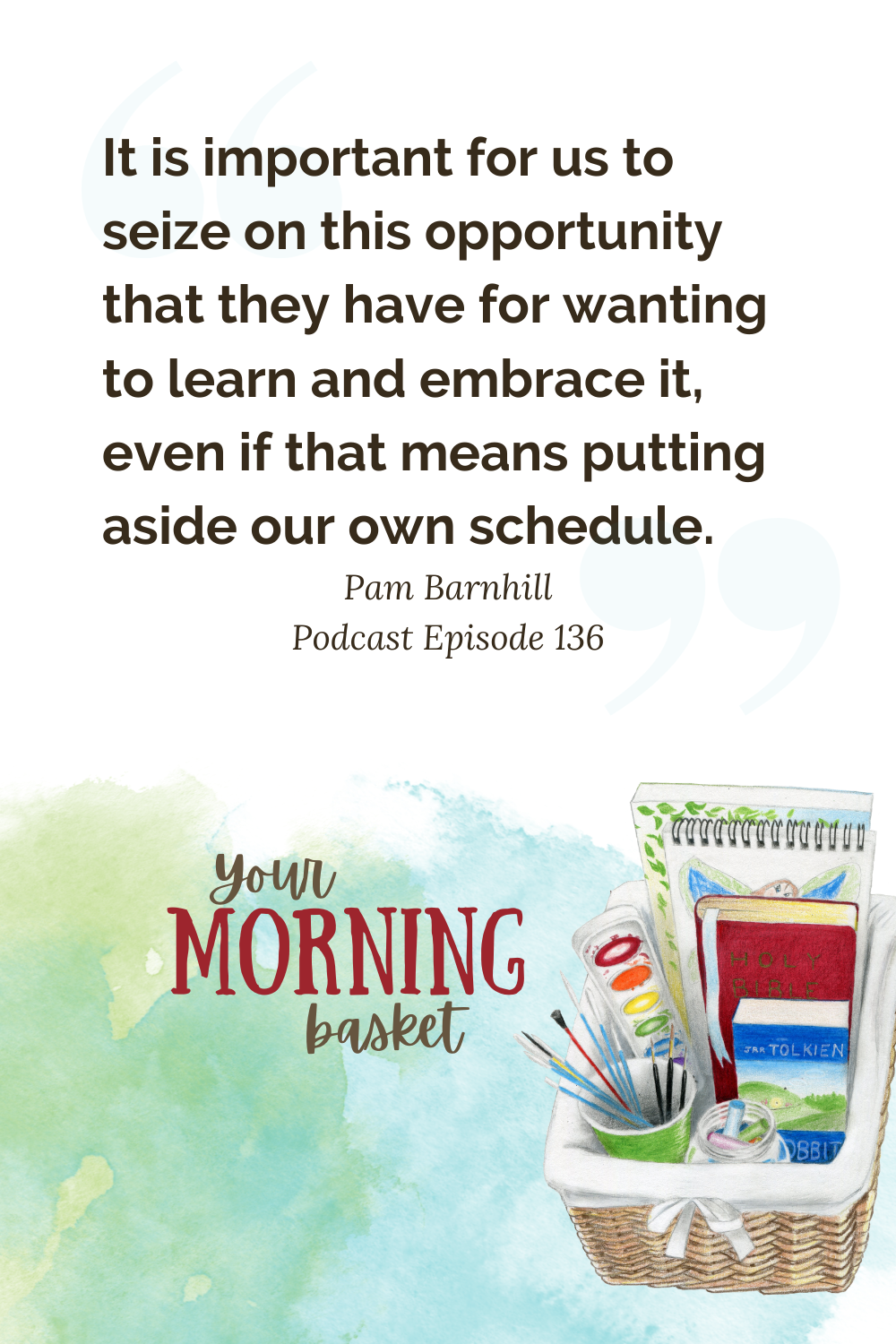
In this episode of the Your Morning Basket podcast, host Pam Barnhill discusses the importance of creating a flexible homeschool schedule that aligns with your family’s values and goals. Pam shares practical tips and tools for overcoming the challenges of feeling overwhelmed by all the subjects, avoiding falling behind and building margin into your homeschool schedule.
Pam encourages listeners to embrace rabbit trails and unexpected learning opportunities, as well as to build in margin to allow for emergencies or unexpected events. She also introduces the concept of a minimum viable day and loop scheduling to maintain structure and balance in your homeschool routine.
Links and Resources from Today’s Show
- Following Rabbit Trails with your Kids podcast
- Using Loop Schedules in your Homeschool
- Put Your Homeschool Year on Autopilot
- Guest Hollow Homeschool Curriculum
Key Ideas about Finding Freedom
- Don’t feel overwhelmed by trying to cover all subjects daily in your homeschool schedule.
- Consider combining kids for certain subjects, especially content area subjects like science and history.
- Create a schedule to follow without putting specific dates on it to reduce decision fatigue and allow for flexibility.
- Prioritize your values and goals when creating your homeschool schedule instead of feeling pressure to replicate a traditional school schedule.
- Build margin into your homeschool schedule to allow for unexpected events or pursue spontaneous opportunities for learning.
- Use a minimum viable day and loop schedule to maintain structure and ease your mind on days that go off the rails.
- Creating stability and routine for your children is important, especially during times of upheaval or emergencies.
- Morning Time can be a helpful tool for creating a flexible and effective homeschool schedule.
- Embrace rabbit trails and document the learning in them to add to your homeschool plan.
- Always be flexible and adjust your schedule to meet the needs of your family.
Find What you Want to Hear
- [1:00] Scheduling is about freedom
- [2:55] Why do our homeschools need structure?
- [7:00] Creating a schedule that works
- [10:01] What if I get behind?
- [16:04] Your schedule should reflect what you want for your homeschool
- [19:21] Building margin into your schedule
- [23:27] The Minimum Viable Day

Leave a Rating or Review
Doing so helps me get the word out about the podcast. iTunes bases their search results on positive ratings, so it really is a blessing — and it’s easy!
- Click on this link to go to the podcast main page.
- Click on Listen on Apple Podcasts under the podcast name.
- Once your iTunes has launched and you are on the podcast page, click on Ratings and Review under the podcast name. There you can leave either or both!

